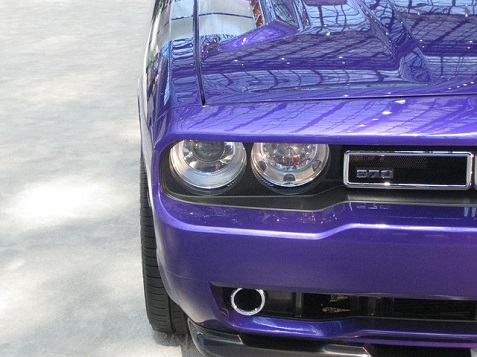
OK, you’ve seen the 50-50 rule haven’t you? It’s the rule of radiator coolant: you should always have a 50% mixture of antifreeze to distilled water in your radiator coolant tank. Bet you’ve wondered how important this is though. What happens if you have mostly water in your coolant? The answer is that electrolysis corrosion can occur.
Electrolysis corrosion is a chemical reaction that occurs between a car’s coolant and the metal surfaces within your car’s cooling system. A typical cooling system, for example, will involve aluminum heads, an iron engine block and an aluminum radiator. Because of these different metals being immersed in the same water path, a matter of electrophysical chemistry occurs; small electric currents will flow between the different metal surfaces. The result of this current flow over time is a corrosion that will eat away at the metals which will eventually cause holes and leaks.
The service staff at www.earnhardtcdj.com warned us that rubber hoses can also fail because of electrolysis corrosion. Rubber is normally non-conductive so you wouldn’t think this would be possible but the coolant can react electrochemically with synthetic rubber too. If you cut open a hose that has failed because of electrolysis, the inside will usually have cracks and creases created by the electrochemical process.
Here’s what electrolysis corrosion can do specifically to your car:
Radiator leakage – Coolant leaking from the radiator with the appearance of small, wet pinholes. You may possibly see coolant dripping underneath your car in small puddles. Generally this means that you need to replace the radiator with a new one.
Heater core leakage – Coolant leaking from the heater core will usually leave drips or wet spots on the front carpet under the dash of your car. You may also see steam or a greasy vapor condensing on your windshield when you put the heater or defroster is on.
Intake manifold gasket leakage – Coolant will seep into your engine oil due to a softening of the seals on certain intake manifold gaskets. It may also occur due to corrosion eating away at the edges of coolant ports in the cylinder heads and intake manifold. Unfortunately, this sort of repair can be expensive because the engine heads need to be removed and new gaskets installed.
What you can do to prevent expensive problems due to electrolysis corrosion? Make sure that good antifreeze with corrosion inhibitors is in your radiator fluid. If it has been more than five years since you’ve changed your coolant, drain and flush your cooling system, then refill it with a 50/50 mixture of fresh coolant and distilled water. (Do NOT use ordinary tap water because tap water can contain dissolved minerals that are corrosive and will shorten the life of the corrosion inhibitors in the coolant.) You can also use pre-mixed antifreeze that contains distilled water and is mixed in the correct proportions.
Face it, keeping a fresh anti-freeze in your car is cheap insurance against the expensive repairs that can occur when electrolysis corrosion starts eating at your engine and other parts.
Article Source: Earnhardt Chrysler Dodge Jeep







